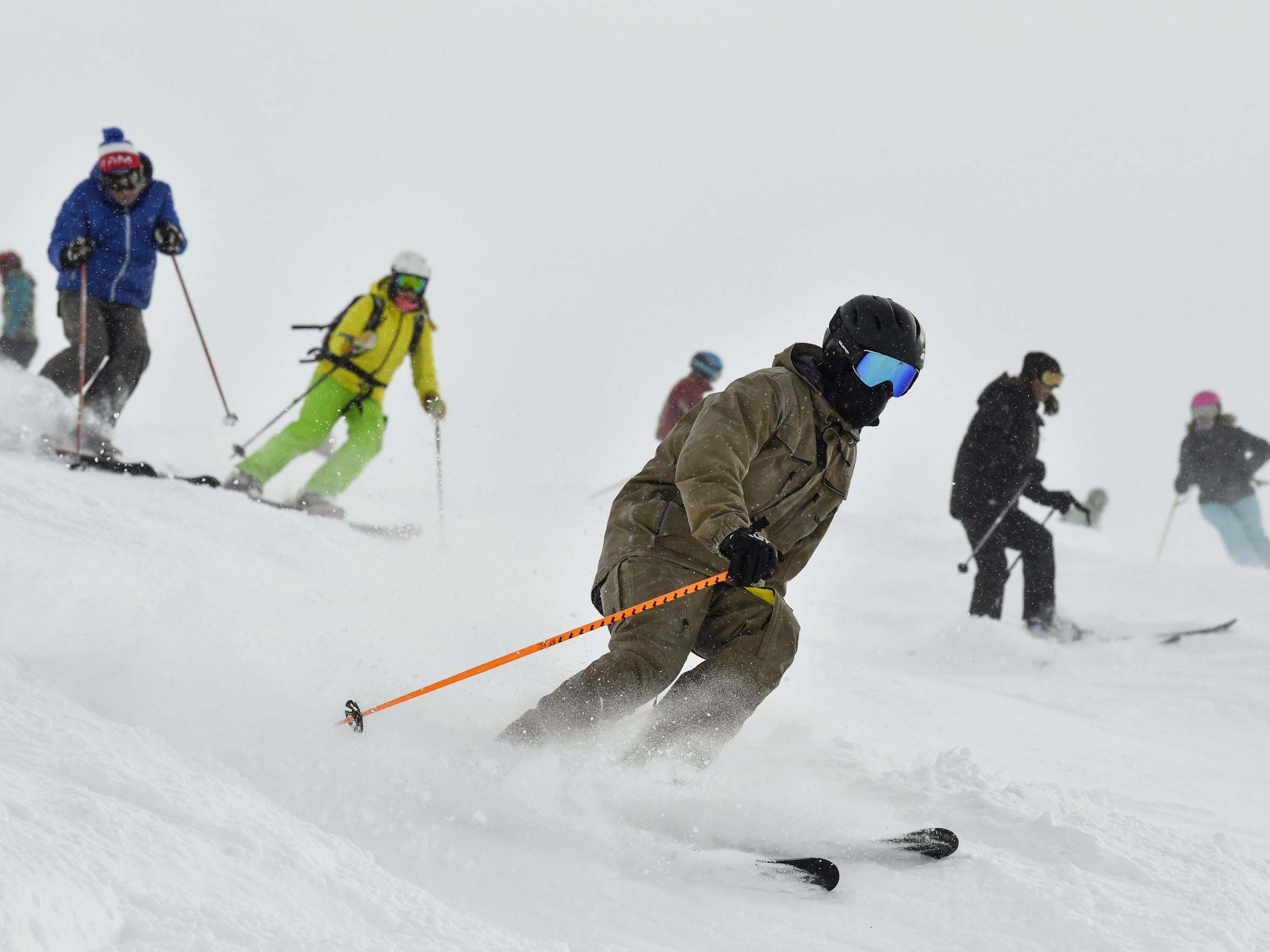20 pledges for 2020: My trip to the Alps triggered a complete re-think about the impact of skiing on climate change
Mainstream sport has a hugely negative impact on the world around us, yet extreme sports aim to bring us together as one with nature. It's time to start asking what the sporting world can do to prevent global warming

Your support helps us to tell the story
From reproductive rights to climate change to Big Tech, The Independent is on the ground when the story is developing. Whether it's investigating the financials of Elon Musk's pro-Trump PAC or producing our latest documentary, 'The A Word', which shines a light on the American women fighting for reproductive rights, we know how important it is to parse out the facts from the messaging.
At such a critical moment in US history, we need reporters on the ground. Your donation allows us to keep sending journalists to speak to both sides of the story.
The Independent is trusted by Americans across the entire political spectrum. And unlike many other quality news outlets, we choose not to lock Americans out of our reporting and analysis with paywalls. We believe quality journalism should be available to everyone, paid for by those who can afford it.
Your support makes all the difference.On the face of it, extreme sports are the ideal recreational activity for those who put climate change at the forefront of their thinking. Whether it’s surfing or mountain biking or skiing, it is nigh on impossible to feel closer to the world we live in when you are embracing the elements it has to offer.
I recently got to experience this again on a skiing trip to Val Thorens, Europe’s highest ski resort at an altitude of 2,300m above sea level. As a keen skier who is used to travelling slightly later in the season, the thought of a January week spent in the clouds was enough to make the body shiver alone.
And yet the overriding emotion throughout the week was an alarming one: where is the snow?
Throughout my six-night stay in the Three Valleys resort, it did not snow once, and the blanket that painted the entire resort white upon our arrival were transformed to long strips of grey concrete by the time the week came to an end. For most it would not have been much of a concern given all runs remained open, but look a little closer and the cause for concern was there for all to see. Suddenly patches of rock were poking out where they shouldn’t have been, and cannons produced artificial snow once the sun went down to end the day’s activities.
By the end of this week, temperatures in Val Thorens will hit a balmy 7C, and across the ensuing seven days the heat is forecast to increase.
There is undeniable evidence that global warming is having a major impact on skiing. Nasa claims that the global surface temperature has increased by 1C when compared to the mean average between 1951 and 1980, but it is nearly double that figure in the Alps where the impact is clear to see.
There are now more than 200 abandoned or closed ski resorts in the Italian Alps alone, and plenty more across France and Switzerland, because of a lack of snow and ski-friendly conditions, while a recent study published by The National Snow and Ice Data Centre predicts Europe’s largest mountainous region will lose 90 per cent of its remaining glaciers by 2100 if greenhouse gas emissions are not reduced.
With this Pledge series in mind, it immediately got me thinking: what can I do individually to try and help address this worrying sight?
An activity such as skiing or snowboarding may feel like it is carbon neutral, but for almost everyone who decides such a holiday is for them, it is not. Like myself, most of those carving up the slopes of the Three Valleys will have flown to Geneva, or Grenoble, or Lyon, completely oblivious that the aircrafts carrying us to be at one with nature are the biggest threat to the planet.
Aviation is projected to be the United Kingdom’s single largest source of emissions within 30 years and its carbon footprint has grown by 20 per cent across Europe since 2005, with a steady increase of around four per cent each year. With trans-European trains making it very easy to travel to the Alps and the luxuries once reserved for flights now openly available on the rails, it is becoming increasingly hard to justify taking to air for a ski trip, simply because doing so will soon eradicate the very process of hitting the slopes.
Join our commenting forum
Join thought-provoking conversations, follow other Independent readers and see their replies
Comments